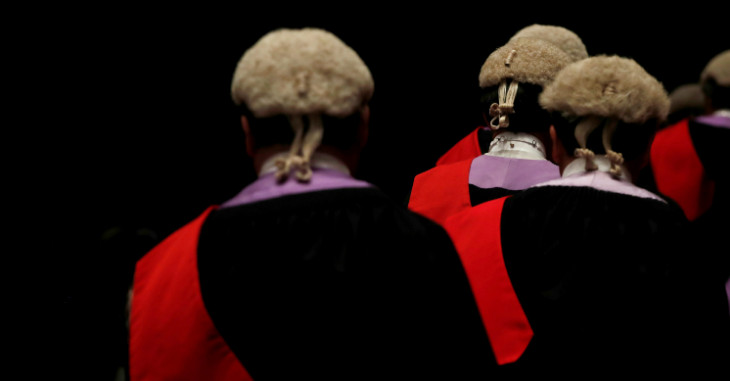Some proposals to Hong Kong government

With all the protests and violence that have been going on for nearly a year, it appears that they have calmed down during the pandemic, but are now reviving with the enactment of the national security bill. Here may I highlight some of the underlying problems that the Hong Kong government will have to address and resolve.
First of all, there are reasons to be concerned about the standards of judges in Hong Kong, which seem to be sliding? Let’s look at two recent cases here.
A youngster was fined $200 for throwing glass bottles and a rubbish bin cover onto the Disciplined Services Quarters. According to the magistrate, the youngster was a first-time offender, and the incident had not brought any harm to anyone. Can I say a litterbug with a fixed fine of $1,500 has committed a more serious crime than the youngster here fined with $200?
Another heated controversial case relates to a 15-year-old boy, who had hurled gas bombs, but was only sentenced with an 18-month probation order. The magistrate described the boy as an “outstanding child” because of his dream to become a district councillor. Look! The boy had committed a very serious crime which could bring significant casualties and be sentenced with life imprisonment. Has all the violence not been extensive enough, and a big massacre should descend before anyone would wake up?
I must here point out two main purposes of a court sentence: (1) that there is sufficient deterrent effect; (2) prevention of an offender to recommit a crime.
Has the penalty imposed by the Hong Kong courts been able to achieve these two purposes?
In UK, there is the Sentencing Council, which is responsible for monitoring the use of sentencing guidelines, and reviewing decisions relating to sentencing. Without such a council in Hong Kong, shouldn’t an independent supervisory committee be established to look into cases which are controversial, and put forward to the Chief Justice a report of findings and rectifications for his further action?
It is really worrying that not only the standards of judges are slipping, so are our educators.
In a recent Chinese History DSE question asking students if “more good than harm was done by Japan on China between 1900-1945”, 38% of the students, who had sat in this exam, gave a positive answer, i.e. more good was done by Japan on China. Why was the question not asked in a way which is the other way round, i.e. “more harm than good was done”? In order to strike a balance, why were only 2 positive excerpts provided without giving students some negative ones?
Although this question has been invalidated, is there a standard answer, in which case the rubric for assessment should be released showing exactly how answers to this question would be graded? Could the Examinations Authority shed some light on my queries above?
Meanwhile, the conduct of the Hong Kong Police Force has been a subject of controversy during the protests.
It is my suggestion that in order to increase the transparency of police officers, all on-duty law enforcement officers must be equipped with a body camera in recording mode during active duty.
This will not only reduce the on-going controversies of police behaving badly, but also act as a deterrent against police misconduct.
-- Contact us at [email protected]
-

Equip young people for the future Dr. Winnie Tang
In late February, the inaugural flight of an air taxi from Shenzhen Shekou Cruise Homeport to Zhuhai Jiuzhou Port took only 20 minutes with an estimated one-way ticket price of 200 to 300 yuan per
-

Are we raising a generation of leaders, or of followers? Brian YS Wong
The essence of education is defined not by the facts it imparts, but the potential knowledge it inspires students to individually pursue on their own. Put it this way – the ideal form of education
-

The urgent need for reforms to sex education in Hong Kong Sharon Chau
Nearly one in every four university students (23%) in Hong Kong has been sexually harassed, according to a 2019 report published by the Equal Opportunities Commission (EOC). A 2019 study found that
-

STEAM should be linked to real life Dr. Winnie Tang
In the 2017 Policy Address, STEM (science, technology, engineering and mathematics) education was proposed as one of the eight major directions to promote I&T development. Since then, funding has
-

Let trees speak for themselves Dr. Winnie Tang
I often say that smart cities start with smart planning, but smart planning presupposes adequate, systematic and up-to-date data. This is important not only for city administration, but also for tree















